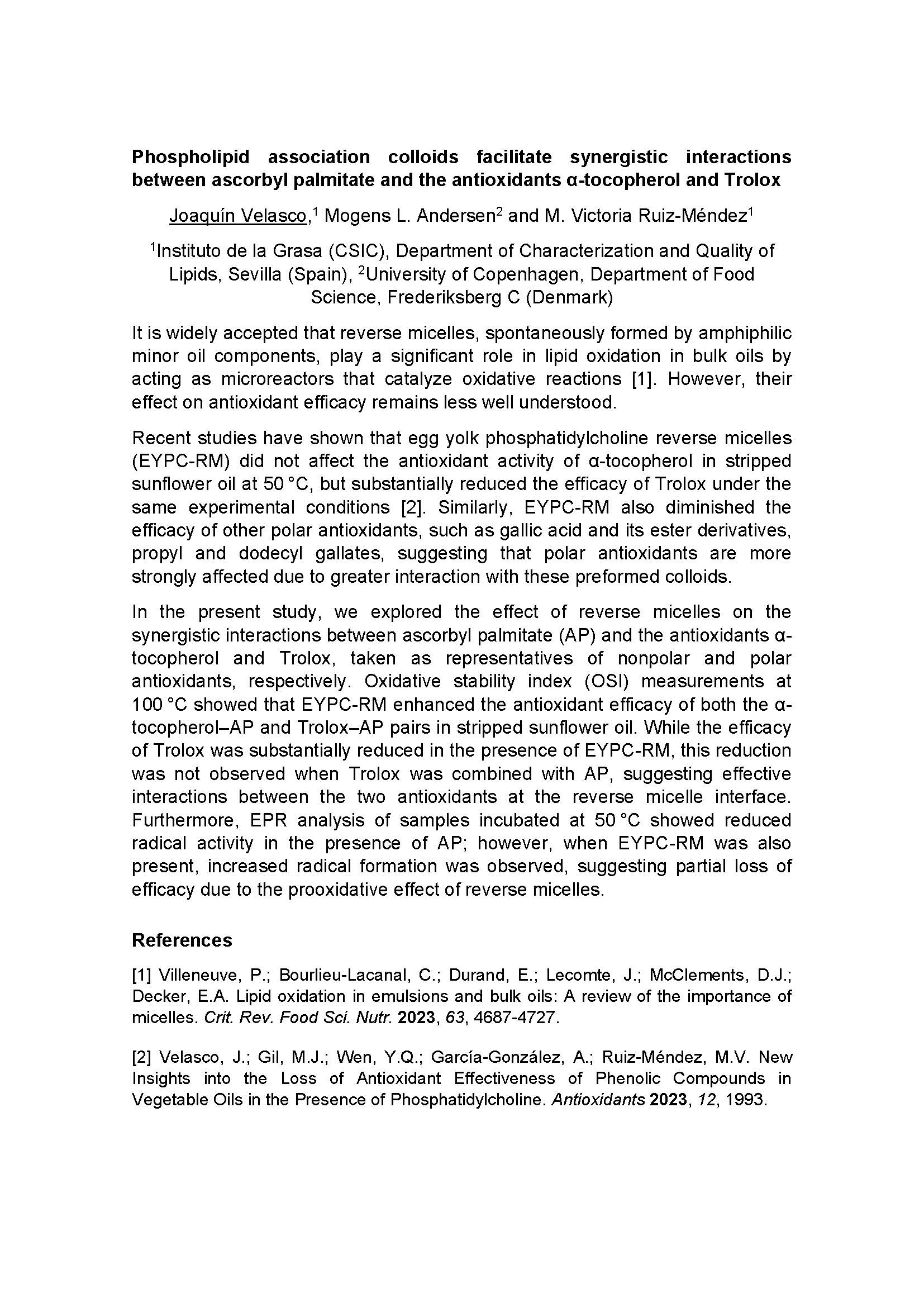It is widely accepted that reverse micelles, spontaneously formed by amphiphilic minor oil components, play a significant role in lipid oxidation in bulk oils by acting as microreactors that catalyze oxidative reactions [1]. However, their effect on antioxidant efficacy remains less well understood.
Recent studies have shown that egg yolk phosphatidylcholine reverse micelles (EYPC-RM) did not affect the antioxidant activity of α-tocopherol in stripped sunflower oil at 50 °C, but substantially reduced the efficacy of Trolox under the same experimental conditions [2]. Similarly, EYPC-RM also diminished the efficacy of other polar antioxidants, such as gallic acid and its ester derivatives, propyl and dodecyl gallates, suggesting that polar antioxidants are more strongly affected due to greater interaction with these preformed colloids.
In the present study, we explored the effect of reverse micelles on the synergistic interactions between ascorbyl palmitate (AP) and the antioxidants αtocopherol and Trolox, taken as representatives of nonpolar and polar antioxidants, respectively. Oxidative stability index (OSI) measurements at 100 °C showed that EYPC-RM enhanced the antioxidant efficacy of both the αtocopherol–AP and Trolox–AP pairs in stripped sunflower oil. While the efficacy of Trolox was substantially reduced in the presence of EYPC-RM, this reduction was not observed when Trolox was combined with AP, suggesting effective interactions between the two antioxidants at the reverse micelle interface. Furthermore, EPR analysis of samples incubated at 50 °C showed reduced radical activity in the presence of AP; however, when EYPC-RM was also present, increased radical formation was observed, suggesting partial loss of efficacy due to the prooxidative effect of reverse micelles.
